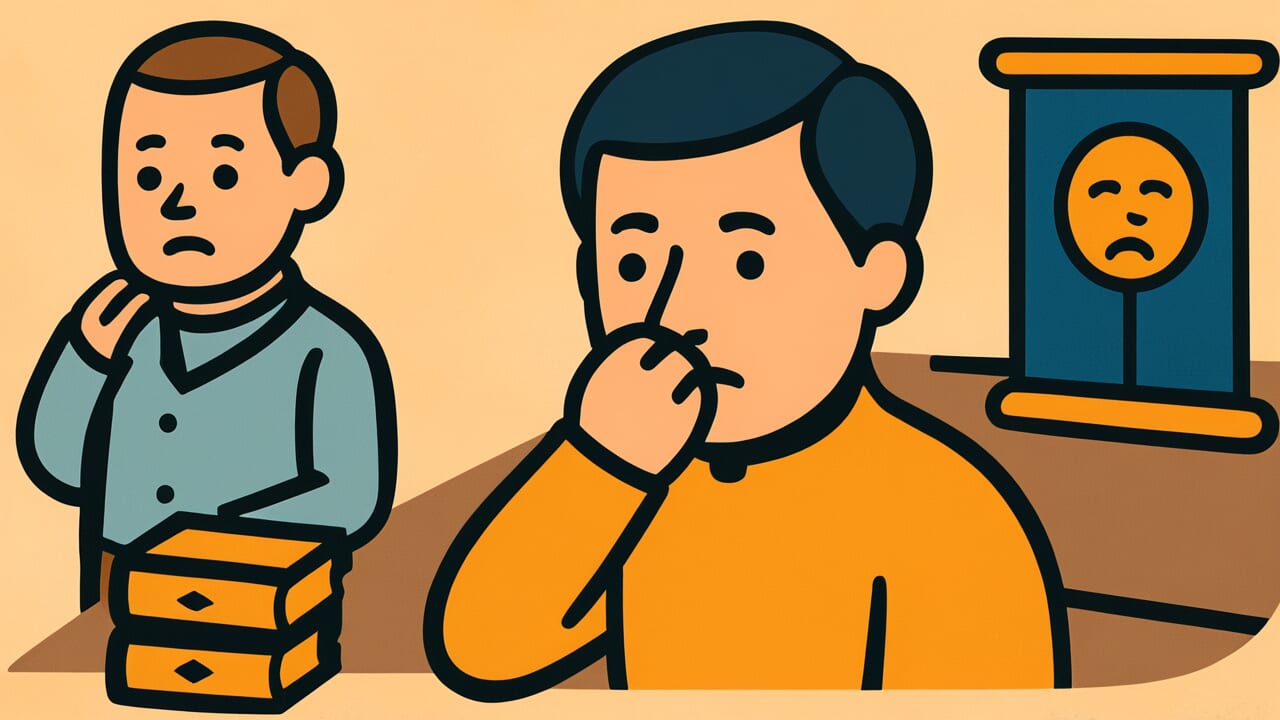How to Read “Those who increase wisdom increase sorrow”
Chi wo masu mono wa kanashimi wo masu
Meaning of “Those who increase wisdom increase sorrow”
This proverb means that as knowledge increases, so does life’s suffering and sorrow. The more you learn, the more you see the world’s contradictions, injustices, human foolishness, and social problems.
Things you could have lived without knowing become impossible to ignore once you gain knowledge. This awareness becomes a heavy burden on your heart.
People use this proverb to express the unique suffering that intellectuals and scholars experience. It also applies when discussing the cost of deepening one’s studies or the pain of knowing the truth.
The proverb doesn’t reject the pursuit of knowledge itself. Instead, it suggests the importance of recognizing and accepting the mental burden that comes with it.
In today’s world, many people experience the pain of knowing too much in our information-overloaded age. This makes the proverb’s meaning more relevant than ever.
Origin and Etymology
This proverb is believed to come from the Old Testament’s Book of Ecclesiastes, Chapter 1, Verse 18. The passage states, “For with much wisdom comes much sorrow; as knowledge increases, grief increases.”
This verse became established as a Japanese proverb over time.
Ecclesiastes is known as a book that deeply contemplates life’s impermanence and the limits of wisdom. The author pursued all kinds of knowledge, only to find that the more he knew, the more he saw the world’s absurdities and human foolishness.
This made his heart heavier. The book expresses humanity’s fate: ignorance shields us from contradictions and sorrows that knowledge reveals.
This saying came to Japan after the Meiji period along with Christian thought. It resonated with Buddhism’s concept of “the bliss of ignorance” and was accepted as a Japanese proverb.
As a phrase expressing the unique suffering of intellectuals and scholars, it became more widely understood after modern times when education spread throughout society.
Usage Examples
- The more I continue my graduate research, the more I realize how difficult this field is and how powerless I am. This is truly “Those who increase wisdom increase sorrow.”
- After learning about environmental issues in detail, I realized that almost everything in daily life hurts the planet, and it made me depressed. This must be what “Those who increase wisdom increase sorrow” means.
Universal Wisdom
Humans are instinctively curious creatures. Our attraction to the unknown and our drive to solve mysteries have been the engine of our evolution.
However, this proverb confronts us with a cruel truth: gaining knowledge doesn’t necessarily bring happiness.
Why does knowledge increase sorrow? Because knowledge shows us “things we didn’t need to see.” The world seemed bright in childhood, but as we become adults, we see society’s contradictions and human ugliness.
This change is closely tied to increasing knowledge.
What’s even more serious is that as knowledge grows, we realize the vastness of our own ignorance. When you first start learning, you feel confident. But as you study deeper, you realize how little you actually know.
This recognition brings humility, but it also creates deep feelings of powerlessness.
Yet humanity has continued seeking knowledge. This proverb has been passed down through generations perhaps because our ancestors understood something important.
They recognized the pain of knowing, but also the nobility of those who seek knowledge anyway. Pursuing truth even when it increases sorrow—that is the essence of being human.
When AI Hears This
The world of an ignorant person is surprisingly simple. For example, if you only see “good job” or “bad job” as two choices, the entropy of that decision is only 1 bit.
This means the amount of worry is limited. But when you gain knowledge, you realize jobs have countless evaluation axes: salary, fulfillment, growth potential, relationships, social contribution, work-life balance, and more.
Suddenly your choices explode to 2 to the 6th power, or 64 options, and entropy jumps to 6 bits.
What’s more troublesome is that as knowledge increases, you see the structure of “trade-offs.” You notice conflicting elements: high pay but demanding hours, fulfilling but unstable, and so on.
In information theory, as these constraint conditions increase, the search space for optimal solutions becomes more complex. Contradictions invisible in ignorance become visible through knowledge.
Even more serious is that the more you know, the more you see the vastness of “what you don’t know.” This is the problem of “unknown unknowns” in information theory.
As the boundary of knowledge expands, the area outside that boundary increases exponentially. The total amount of anxiety and doubt grows in an exponential function.
Ignorance was a filter that compressed choices down to two. Knowledge removes that filter and exposes the world’s true complexity. Sorrow is this explosion of information itself.
Lessons for Today
This proverb teaches us that pursuing knowledge requires resolve. Learning doesn’t always bring only joy. Knowing the truth can sometimes make your heart heavy.
But staying ignorant out of fear isn’t necessarily happiness either.
In modern society, information overflows everywhere. Watch the news and you see problems from around the world. On social media, other people’s successes stand out prominently.
Knowing too much can exhaust your heart. That’s why the ability to discern what knowledge you truly need is so important.
At the same time, this proverb suggests the responsibility of those who possess knowledge. Once you know something, you’re asked how you’ll use that knowledge.
Feeling sorrow is proof that your heart is sensitive to problems and wants to change something.
Accepting the sorrow that comes with knowledge while finding hope beyond it—this may be the attitude required of us living in modern times.
Beyond the pain of knowing lies true growth.



Comments